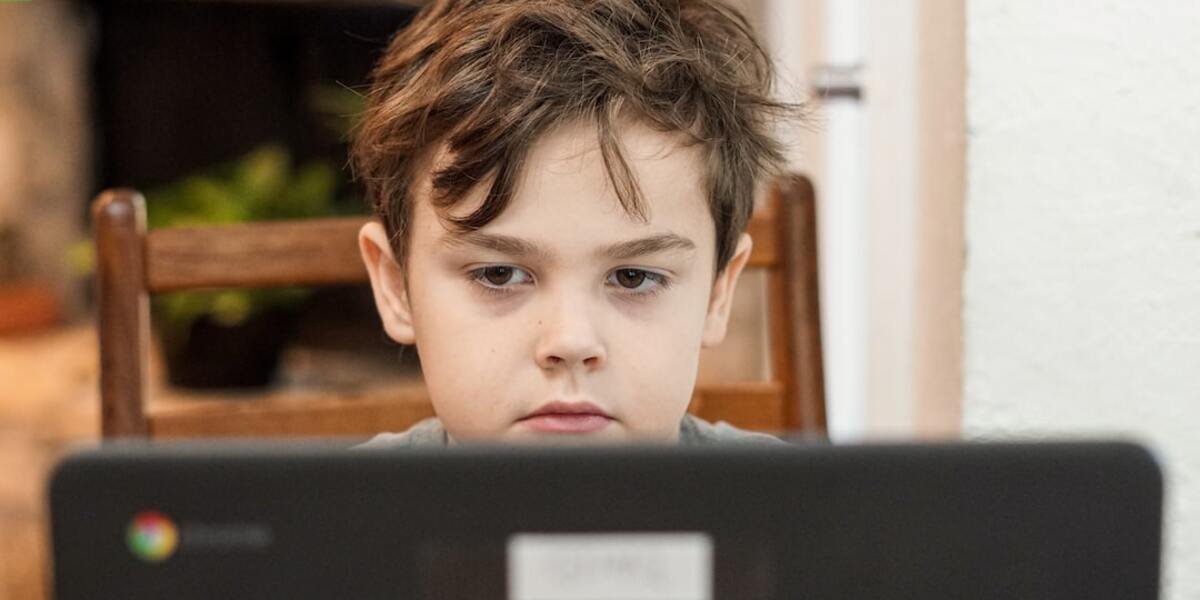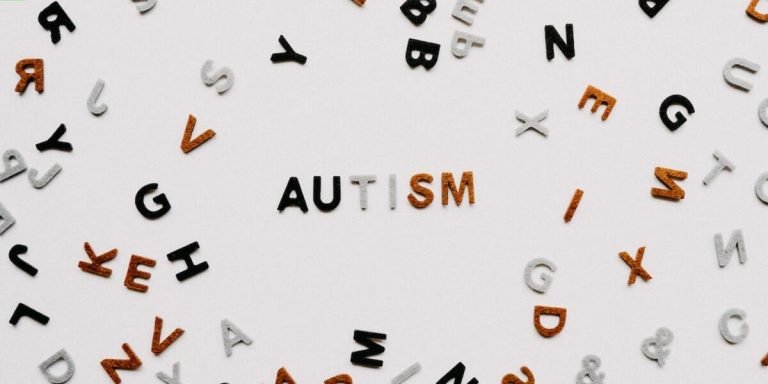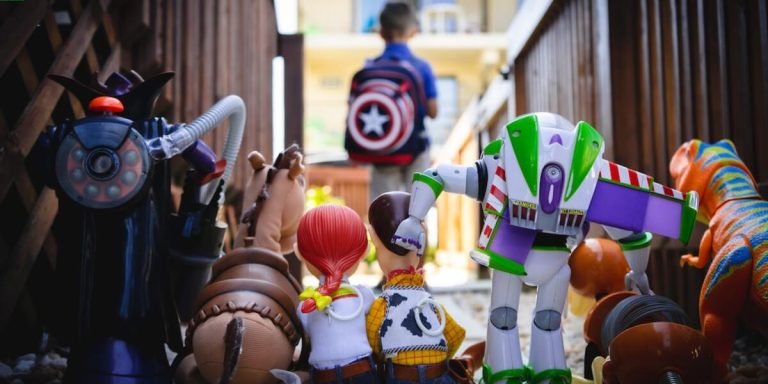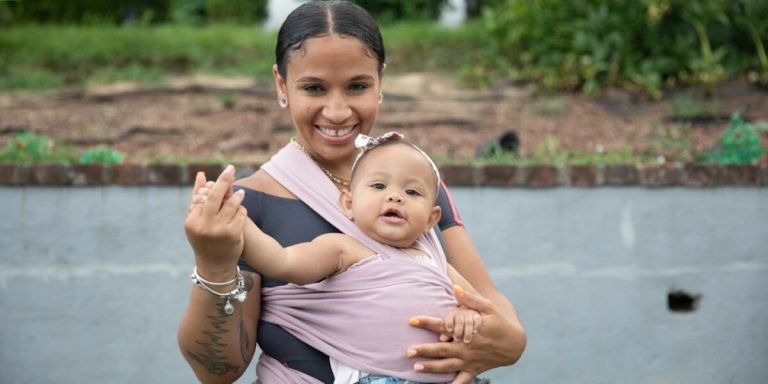6 Principles of Idea: Enhancing Creativity in Early Childhood Education
Early childhood education lays the foundation for a child’s lifelong learning journey. An approach that is increasingly gaining attention in this sector is encompassing the “6 principles of IDEA” into teaching methodologies. This transformative mechanism not only bolsters academic outcomes, but it also enhances creativity and cognitive development among younger learners.
Inclusive Education, as fostered by IDEA (Individuals with Disabilities Education Act), supports children with unique educational needs or disabilities to learn alongside their peers in regular classrooms. Access to special education resources and support designed around these 6 principles ensures each child can maximally utilize their creative abilities within an inclusive environment while receiving necessary personalized assistance.
Did you know?
Studies show that children exposed to creative activities at an early age can boost their capacity for original ideas, with one study revealing a 50% improvement in unique idea generation among kindergarteners engaged in regular innovative play.
Understanding the Six Core Principles of IDEA
The Individuals with Disabilities Education Act (IDEA) is a cornerstone legislation in the realm of special education. Its six core principles form an integrated framework aimed at providing equal educational opportunities for students with disabilities.
Fundamentally, IDEA ensures that all children have access to Free Appropriate Public Education (FAPE). This means schools must provide individualized instruction designed to meet each child’s unique needs at no cost to families. Additionally, it insists upon Least Restrictive Environment (LRE), mandating that such students should learn alongside non-disabled peers whenever possible and be provided ample support resources when placed in general education classrooms.
Further within IDEA are principles accentuating parental involvement and student participation – two important elements propelling success in educational endeavors. Parents’ role isn’t confined only to attending meetings; they partner up with school teams helping devise Individualized Education Programs tailored according their kid’s capabilities and limitations whilst considering long term goals as well. The concept of procedural safeguards further empowers parents by letting them voice concerns if they believe their child’s rights under IDEA aren’t duly met or upheld.
Lastly but certainly not leastly, comes the principle around Evaluation & Eligibility implications combined with IEP Implementation requirement which necessitates frequent evaluation instances ensuring education programs remain appropriate over time while being adaptable per altering circumstances.
Overview of Individuals with Disabilities Education Act (IDEA)
The Individuals with Disabilities Education Act (IDEA) is an essential piece of legislation that seeks to ensure children with disabilities receive the education and support they require. At its heart, IDEA revolves around six core principles, each designed to optimize learning outcomes for these special individuals.
1. Zero Reject: This principle asserts no child, regardless of their disability level or type should be denied education in a public school setting.
3. Least Restrictive Environment (LRE): According to LRE, disabled students must learn alongside their non-disabled peers as much as possible unless extraordinary circumstances call upon specialized settings.
Breaking Down IDEA’s Key Components for Effective Special Education
IDEA, short for Individuals with Disabilities Education Act has revolutionized the way special education is approached in the United States since its inception. At the heart of this influential legislation lie six core principles that have shaped and continue to form an integral part of strategic planning around effective special education. Let’s explore these 6 principles of IDEA.
The first principle is Free Appropriate Public Education (FAPE). This means that all children, regardless their disabilities, are entitled to a public education which suits their unique needs without any cost involved for parents or caregivers.
Secondly, we have Appropriate Evaluation where referred students must be comprehensively tested so as not to overlook anything crucial regarding their educational need or ability.
Least Restrictive Environment (LRE) constitutes our fourth rule under IDEA wherein disabled students should spend as much time possible with peers who do not possess disabilities while achieving beneficial learning experience simultaneously.
Implementing IDEA in Educational Settings
In the evolving landscape of childhood education, the Integration of technology in educational settings has become more critical than ever. One such facet is implementing IDEA (Individuals with Disabilities Education Act) – an initiative aimed at providing special education resources and support to children suffering from disabilities. Despite its noble intentions, introducing IDEA within a school environment can be challenging due to several reasons.
Achieving seamless integration requires understanding and adhering to six principles that serve as its backbone — starting from Zero Reject Policy all through Procedural Safeguards. These principles guide educators when it comes to applying this law effectively in their teaching methods while ensuring equal opportunities for every student.
Harnessing modern technology is vital in realizing these ideals; not just for enhancing academic instruction but also for improving communication between parents, teachers,and students alike. Innovative tech tools like Artificial Intelligence(AI), Extended Reality (XR), Augmented Reality(AR)and Virtual Reality(VR) have shown immense potential towards ameliorating challenges faced by disabled learners – making lessons more engaging and easier-to-comprehend.
Tailoring Instruction to Fit Individual Needs Under IDEA
With the evolution of education systems, it’s crucial to grasp how technology can help in delivering specialized instruction under IDEA (Individuals with Disabilities Education Act). By understanding and applying the “6 principles of IDEA”, we can effectively tailor learning for every child.
The first principle is “Zero Reject”. This signifies that no student, regardless their disability level or nature, should be denied access to a free and appropriate public education. In this digital era, educators utilize ed-tech tools like text-to-speech software and virtual reality to ensure all students have an inclusive learning experience.
Secondly comes “Nondiscriminatory Evaluation”. It implies unbiased assessments must be conducted before qualifying a student as ‘disabled’. With advancements such as online adaptive testing and AI algorithms predicting learner performance trends, evaluation has become more accurate than ever.
Thirdly,”Appropriate Public Education” encourages developing personalized educational plans aligned with individual needs. Educators now use Learning Management Systems which offer customized lesson planning capabilities based on each pupil’s abilities.
Underlying fourth is “Least Restrictive Environment” stipulating disabled children should learn along non-disabled peers whenever possible. Here technology aids via collaborative platforms facilitating interactive discussions among diverse learners irrespective of physical location or ability differences.
Navigating Assessments and Evaluations in Compliance With IDEA
The first of the “6 Principles of IDEA” is Zero Reject where no child should be denied access to education because of their disability. Technology significantly supports this principle by allowing flexible learning approaches that cater to individual needs.
Secondly, nondiscrimination testing ensures impartial assessment regardless if a learner has disabilities or not. Today’s edtech tools embed adaptable features ensuring equal opportunities during examinations such as voice recognition technology assisting students unable to write due cognitively related constraints.
Enhancing Collaboration Through the Framework of IDEA
In the domain of childhood education, enhancing collaboration has emerged as a key focus area. The framework of IDEA (Individuals with Disabilities Education Act) takes center stage in this aspect, epitomizing comprehensive efforts to create an inclusive environment for all learners. As we venture more into the year 2023, technology integration plays an inevitable role in operationalizing these principles and bridging gaps in special education resources and support.
Collaboration within IDEA is not just about partnering on tasks; it’s intricately connected to six founding principles that ensure every child receives appropriate educational services tailored to their needs. Herein lies its power – by fostering partnerships between students themselves along with educators and parents involved actively targeting personalized objectives using technology-driven solutions.
Technological advancements have accentuated possibilities tenfold: smartboards make learning interactive while assistive technologies facilitate instruction for children with disabilities reaffirming equality principle enshrined at heart of IDEA. Furthermore, digital forums promote communication amongst stakeholders reinforcing trust, thus paving way towards achieving collaborative goals set forth under IDEA framework seamlessly.
Remember too that flexibility exists within this model setting precedence for innovation aligning individual strengths making collective educational journey transformative experience altogether!
The Role of Parents and Educators in Developing an IEP
In the journey towards creating a robust Individualized Education Program (IEP) for every child, parents and educators play critical roles. Their collaboration constitutes one of the fundamental “6 principles of IDEA” – The Individuals with Disabilities Education Act.
The first step lies in understanding that every child is unique. Hence, this uniqueness should manifest not only through their personalities but also in how they learn best. Parents offer an unparalleled perspective into their children’s learning styles and responses under different circumstances due to close interactions within home settings.
Educators can supplement parental insights by observing students’ performances based on various pedagogical approaches deployed at school or class levels. By sharing these inputs during IEP meetings, they contribute significantly to designing individualized educational plans suitable for each student’s needs.
Parents’ participation extends beyond providing feedback about learner traits or defining modifications required around specific disabilities—it involves actively implementing agreed-upon strategies at home while monitoring progress over time apart from advocating necessary adjustments when needed.
On the other hand, teachers embody frontline soldiers navigating challenging terrains concerning classroom management amidst accommodating diverse learners having varying special-education requirements governed by respective IEPs designed—you guessed it—together!
Interdisciplinary Teamwork: Connecting Services and Supports
Interdisciplinary Teamwork is crucial for enhancing collaboration within the structure of IDEA, or Individuals with Disabilities Education Act. These principles directly relate to enriching Special Education resources and support in today’s educational landscape.
The first principle under IDEA, “Free Appropriate Public Education (FAPE)”, ensures that each child gets an education tailored to their specific needs without any cost to parents. This means teachers, specialists and other staff members must work together interdisciplinarily towards establishing framework where every student has access to suitable learning resources they need.
Next comes the second major principle – ‘Appropriateness’. Every special-needs student requires a different set of services based on their personal requirements and challenges. Through interdisciplinary teamwork composed of educators, therapists, psychologists etc., it becomes feasible to develop individualized plans fitting perfectly with learner’s unique circumstances.
Effective Evaluation constitutes one more critical aspect among 6 Principles Of Idea demanding collaborative effort from all stakeholders involved- be it parent/guardian or associated professionals like speech therapist/physical therapist etc helping address students’ exceptionalities accurately for deriving proper assessment outcomes per third Principle-‘Individualized’.
Conclusion
In wrapping up, revisiting and embracing the “6 principles of IDEA” is an effective way to inspire creativity in early childhood education. By implementing these methodologies, educators can nurture young minds while parents provide supportive environments that foster their children’s unique perspectives. It’s about cultivating a generation of critical thinkers who see beyond black and white to explore the vibrant layers in between.
Indeed, this journey doesn’t end here! Our website is brimming with more insights on facilitating successful learning experiences for youngsters. For comprehensive support on nurturing your child or helping students thrive within educational settings – from insightful articles to practical guides – consider spending some time browsing through our pages.
Happy teaching!







